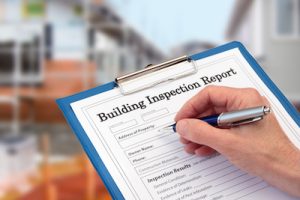Aspects To Keep In Mind While Working With a Real Estate Agent
Friday, January 25th, 2019Most people that are selling their property feel that it would be advantageous to hire the services of a good real estate agent. But a large percentage of them also feel that it can be quite challenging to find one that ticks all the boxes. Here are some basic things to keep in view while hiring and working with a real estate agent:
Conduct Some Market Research
It’s important that you carry out some research in your local area. Either walk around or drive through the neighbourhood and keep an eye out for real estate signs (especially ones that have ‘sold’ written on them). Check which agents’ names show up more often on these signs. Many people hire a selling agent based on the recognition the professional has in their community.
Meet with the Agent in Person
Make it a point to walk into open houses in your local area. Pay attention to how the agent deals with potential buyers. It’s also important that you take some time to personally interact with the agent, rather than simply taking a business card and leaving. The aspects to look out for are — a professional attitude and a great personality. Many people find agents at open houses they have attended.
Read Ratings and Reviews Online
Today, it isn’t difficult to find reviews for real estate agents online. Once you have identified a few agents, conduct an online search and read reviews and customer testimonials, check what their ratings are. Read what the agent’s previous clients are saying about the services offered. It’s also important to note the manner in which the agent responds to any negative reviews.
Referrals Are A Great Way to Go
Personal referrals from family members or friends are probably one of the best ways to find a great real estate agent. More than one in five home sellers find agents via referrals from family, friends, colleagues or neighbours.
Meet with Multiple Agents
Interview at least three real estate agents. It’s never a good idea to settle for the first one you come across. A majority of home sellers end up contacting only one agent. However, when you discuss your requirements with multiple agents, it gives you the chance to compare their services, personality, and approach and decide which one you find best suited to your needs. If you have got some referrals, meet with at least three of them and ask them the exact same questions to judge whether you can work with them.
In addition to all these things, it’s also important that you set clear expectations when hiring an agent. Explain what your communication preferences are and make sure the professional is easily accessible as well. Following these basic tips will help you zero in on a real agent that would be a good fit – like us, the Ramahi Real Estate Group!
Whether you’re looking to buy or sell in the Edmonton area, for a greater probability of success you need a dedicated professional. We can guide you through the process and be counted on to protect your investment!




 Buying a home isn’t something you can take lightly. It’s probably one of the biggest investments you will make your life and you need to ensure but you make a smart decision. One of the best ways to find a great house is to hire the services of an experienced real estate agent. It also very important that you ask the agent certain questions about buying a home. Here are some of them:
Buying a home isn’t something you can take lightly. It’s probably one of the biggest investments you will make your life and you need to ensure but you make a smart decision. One of the best ways to find a great house is to hire the services of an experienced real estate agent. It also very important that you ask the agent certain questions about buying a home. Here are some of them:


 Take what experts say into consideration on whether the prices will increase or decrease. By using a home affordability calculator you can determine how much money you can spend on the purchase. Take a look different mortgage rates and then calculate a few of the basic mortgage options. You can then determine whether the rates will increases or decrease in a couple of years.
Take what experts say into consideration on whether the prices will increase or decrease. By using a home affordability calculator you can determine how much money you can spend on the purchase. Take a look different mortgage rates and then calculate a few of the basic mortgage options. You can then determine whether the rates will increases or decrease in a couple of years.
 Compile a list of all the different features that you are looking for in a home, like the number of bedrooms or closets and take this with you every time you visit a house. Looking at different properties each day makes it difficult to differentiate one from the other. Write down notes on every house you visit, this will make it easier for you to make a final decision. Take a note of all places that require repairs and calculate the amount of money it will take you to fix them, this can help when you are negotiating the price of the house.
Compile a list of all the different features that you are looking for in a home, like the number of bedrooms or closets and take this with you every time you visit a house. Looking at different properties each day makes it difficult to differentiate one from the other. Write down notes on every house you visit, this will make it easier for you to make a final decision. Take a note of all places that require repairs and calculate the amount of money it will take you to fix them, this can help when you are negotiating the price of the house.

 Listening to Too Many People
Listening to Too Many People





 As the tenant, you also have the right to expect a clean home when you first move in. The landlord is responsible for all maintenance and repairs. You have the right to a safe home. Even if you were aware of any issues within the house before you moved in, it is still the landlord’s responsibility to fix it up. The landlord also needs to provide access to cold and hot water in addition to other basic utilities like fuel and electricity. The payment for these utilities can be made by you, the tenant, or the landlord. Even if you have failed to pay rent, these basic utilities cannot be shut off.
As the tenant, you also have the right to expect a clean home when you first move in. The landlord is responsible for all maintenance and repairs. You have the right to a safe home. Even if you were aware of any issues within the house before you moved in, it is still the landlord’s responsibility to fix it up. The landlord also needs to provide access to cold and hot water in addition to other basic utilities like fuel and electricity. The payment for these utilities can be made by you, the tenant, or the landlord. Even if you have failed to pay rent, these basic utilities cannot be shut off. The above question might seem like a no brainer, but many people still aren’t sure which way to go. If you want to get your foot on the property ladder these days, you run into trouble immediately. The price of buying a home has never been higher, but despite that, the advantages of buying versus renting are still extremely favourable.
The above question might seem like a no brainer, but many people still aren’t sure which way to go. If you want to get your foot on the property ladder these days, you run into trouble immediately. The price of buying a home has never been higher, but despite that, the advantages of buying versus renting are still extremely favourable.
